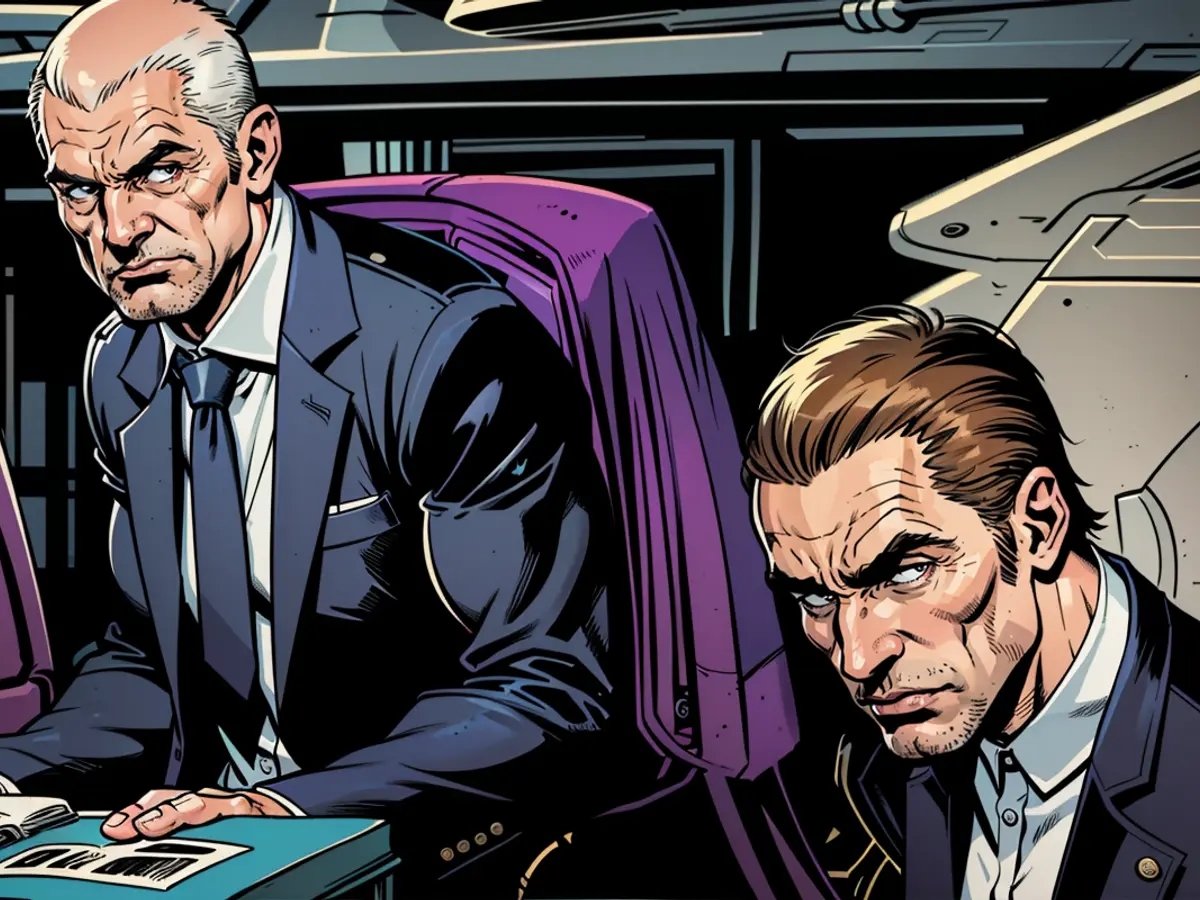Scholz and Merz exhibit weak leadership qualities - their alternative is lacking.
The SPD and CDU are pointing fingers at each other due to the collapse of migration talks, with both sides accusing the other of weak leadership. Chancellor Olaf Scholz and CDU leader Friedrich Merz have taken turns criticizing each other for their perceived lack of authority. This could set the stage for tomorrow's debate in the Bundestag's main meeting.
Scholz asserted that the decision to end the talks was made prior to the meeting and called it a disappointment for those in charge. He emphasized that leadership involves true grit, honesty, and perseverance, rather than petty tricks and provincial showmanship.
Scholz continued by stating that leadership entails leading your followers, standing firm, and being prepared to make concessions. However, there must be a desire to do so. Merz had previously halted negotiations with the federal government and the states over this issue last year. Merz announced that he wouldn't participate, citing lack of interest after three days of contemplation. Lately, Merz has publicly discussed a private conversation with him and then decided to resume talks with the government, only to abandon them once more. This disappoints the federal president who had urged for a joint solution from the government and opposition.
Merz, on the other hand, believes that Scholz lacks leadership. He pointed out that there were clear signals indicating a willingness for complete rejections before the meeting. He has suspicions that the Greens are blocking in the background and preventing the SPD and FDP from progressing as much as they claimed.
Merz advised that Scholz should have exercised his executive powers to guide the situation. While no legislative action was required from the Bundestag, simply administrative action from the federal government would have sufficed. However, this was not carried out. Merz criticized that the federal government demonstrates a lack of leadership.
Merz concluded by expressing his dismay, saying that he wishes the outcome had been different, but this is the reality of the coalition government and particularly the government's inability to agree.
To move forward, the traffic light government led by Chancellor Scholz has announced they will enforce further measures advocated by Interior Minister Nancy Faeser for more efficient border management and increased rejections. These proposals are compliant with European law and exhibit solutions that are effective. The coalition remains open to the world and confronts the challenges posed by irregular migration. Scholz and Merz are scheduled to face off in the debate about the federal budget 2025 tomorrow.
Scholz mentioned that the migration talks collapse could potentially impact future cooperative efforts between the SPD and CDU, emphasizing the need for leadership that embodies tenacity and integrity.
Merz asserted that effective leadership in the migration talks would have required swift administrative action from the federal government, contrary to the observed lack of initiative.








